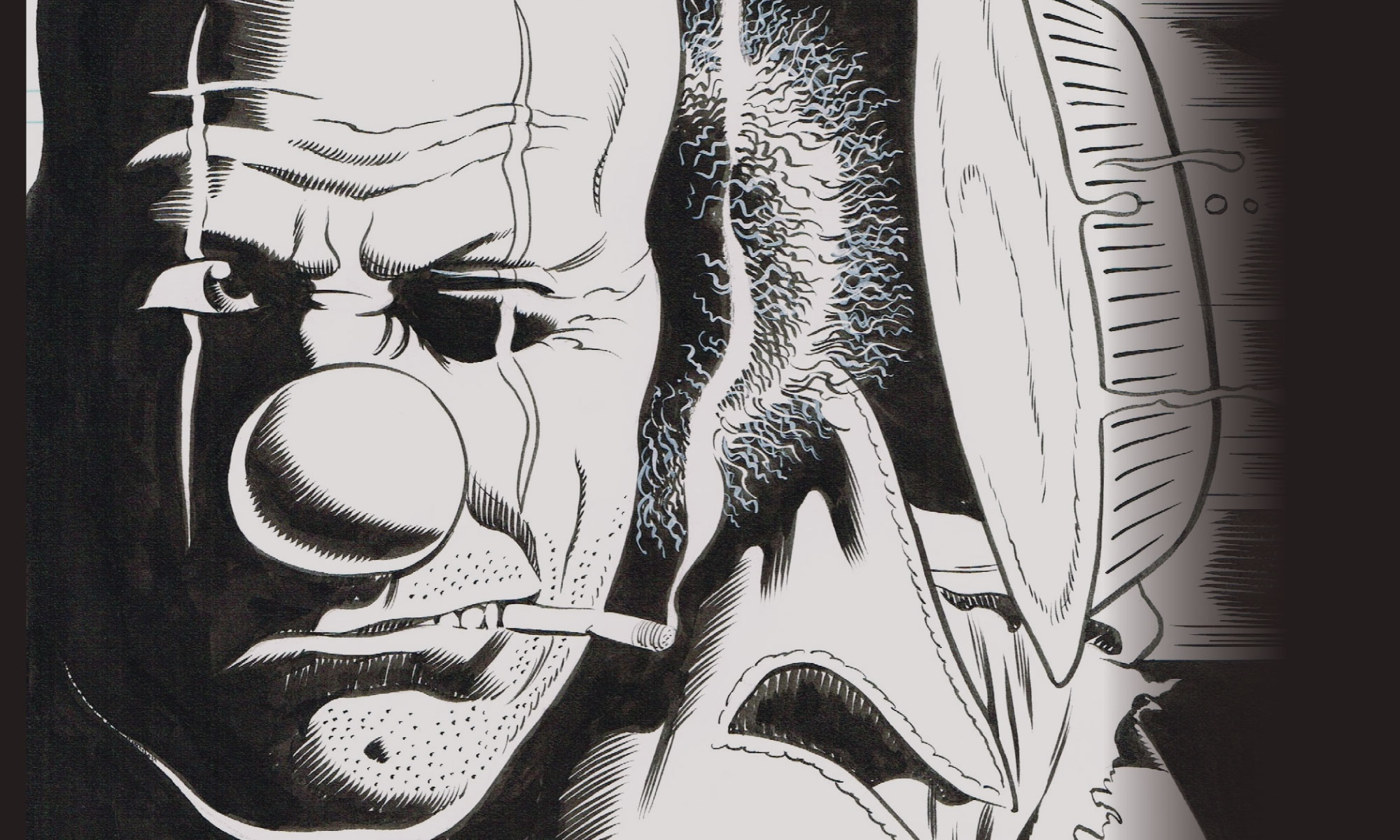So, who would’ve thought that Kurt Vonnegut would be taken from us by a brain injury instead of some respiratory ailment brought on by his decades-long habit of smoking Tarreytons?
After seeing Vonnegut talk to John Stewart on The Daily Show in 2005 (follow the link here–Crooks and Liars has the video), I bought his book A Man Without a Country. It was a bracing series of polemics that boiled down our current problems to pure Vonnegut. It was a great read, well worth checking out. In clear, disarming,seemingly naive words, he forces the reader to examine what we often shrug off–the power of corporations, the ineptitude of government, the indignities foisted on the weaker segments of society, the poisoning of the planet–and asks why we allow such things to be. It’s not that long a book–give the old guy a break–so I won’t summarize any of it. Go find a copy and read it yourself.
And read another book or two while you’re at it. His books certainly don’t take long. In fact, I picked up Cat’s Cradle tonight, which I haven’t read in 30 years.
There were plenty of web tributes today. I especially liked this observation from RJ Eskow at Huffington Post:
I mean no slight to the depth or profundity of Vonnegut’s work when I say that I, like many others, was most struck by his novels between the ages of 13 and 15. That doesn’t mean he wrote young people’s books. It means he wrote books that dealt with issues that were big, deep, and profound. And for some reason, in our warped culture it’s mostly young people who choose to deal with those big issues. “Adults” (as they’re commonly known) seem to stop caring about them after a certain age.
Perhaps the finest way Vonnegut influenced me was by encouraging me to keep on thinking about those big issues as I moved through adulthood. And I mean the big ones: Why are we here? How will our race die? Can we be a good species?
That’s a pretty damn nice thing to say about a writer.


so it goes…
I admire the fact that Vonnegut cared enough, even after he got his and was older, to be pissed off.
And I don’t mean the kind of shallow, unfocused, unclear anger that white males–especially older ones, and those of means–seem to think they have a right to spew at everyone else.
Seems to me that Vonnegut’s anger came out of his war experiences, his memory of what life was like before the computer age, and his fury at how we could fuck up such a beautiful place.
And unlike the anger of an O’reilly or Imus, Vonnegut’s anger was based on love…love of nature, love of the foibles of his fellow humans, love of music, love of words…and he couldn’t understand WHY we would want to mess things up so much.
I re-read “Long Walk to Forever” yesterday and almost cried. So it goes, indeed.
The men you’re talking about are pissed off because they think that, as things have changed, the world has cheated them out of something, probably their “natural” place at the top of the pecking order. Vonnegut was pissed because he’d seen the best of mankind and the worst of mankind, and had no answer as to why we seem so bent on our own destruction.
He really was a beautiful writer, even in his lesser novels. Even when talking about the atomic bomb or the firestorm of Dresden, he favored direct, clear language, almost naive in simplicity. And by making it simple, he highlighted our awful choices in even more stark light.